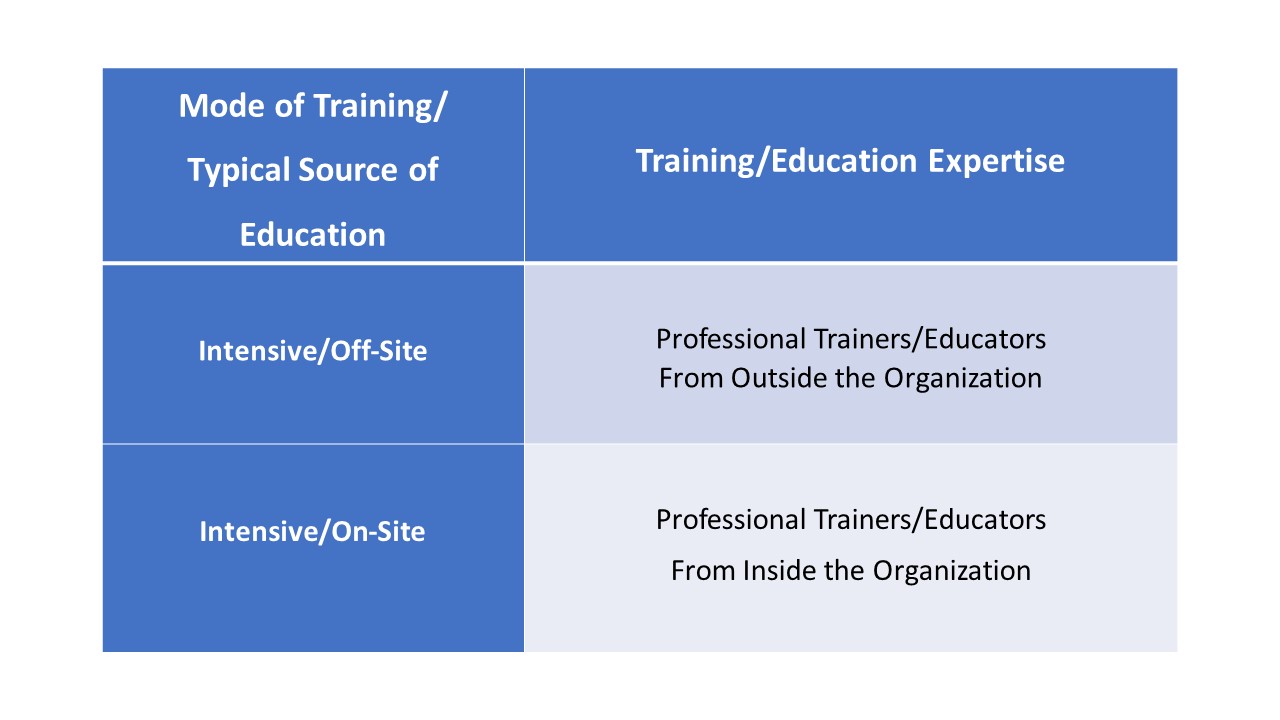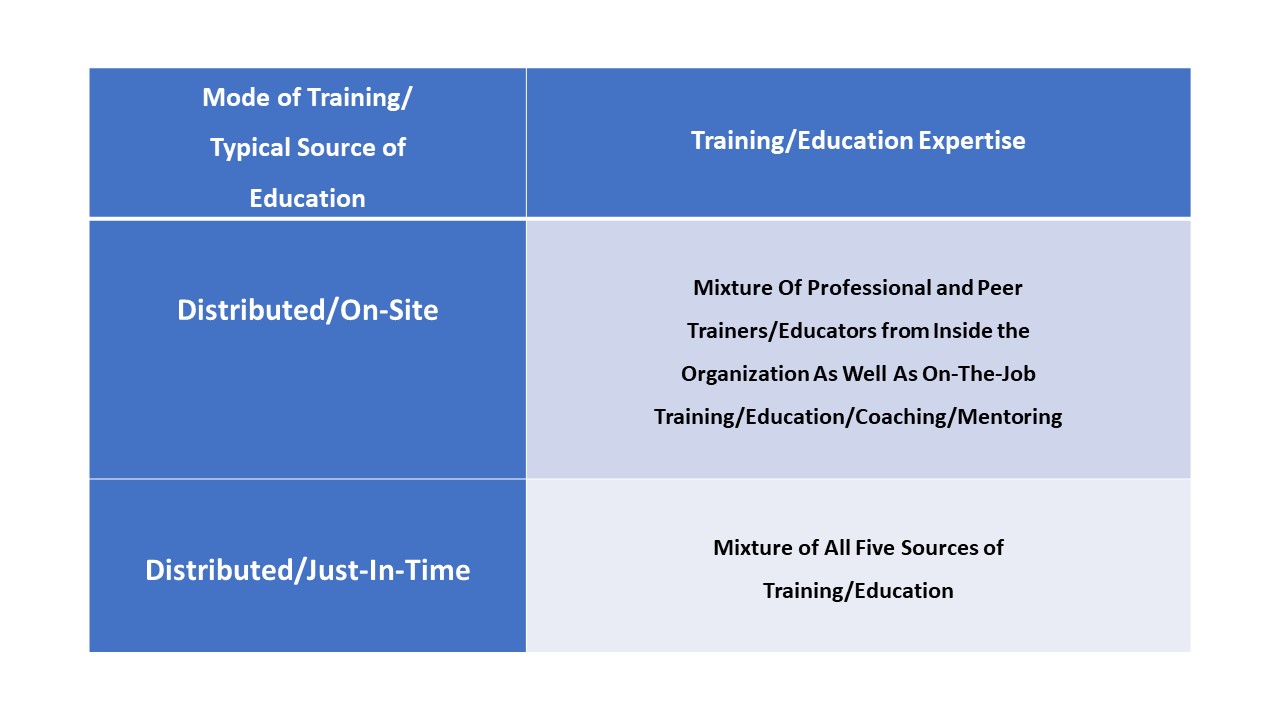
The training and education that organizations provide to their employees typically come from one of five sources: (1) professional trainers and educators from outside the organization, (2) professional trainers and educators who are employees of the organization, (3) trainers and educators who hold some other position within the organization, but occasionally provide training or education in the organization, (4) on the job training and education provided informally by other employees with more extensive experience and (5) on the job training and education provided by someone either inside or outside the organization who is designated as a coach or mentor. Organizational leaders often chose between these five sources on the basis of the specific delivery mode being used; thus, the four modes I described above closely relate to the sources of expertise (see Chart: Modes and Sources of Training and Education).
Chart: Modes and Sources of Training and Education
Source One: Professional/External Trainers and Educators
Many of the most prestigious and visible training and education programs for many years have taken place off-site (Mode One) and have been conducted by professional trainers and educators. The National Training Laboratories (now called the NTL Institute) offered rich learning experiences at its summer programs in Bethel Maine, through workshops conducted by highly trained and internationally known experts in human relationships and organizational change. Prestigious universities, such as Harvard University, Stanford University and UCLA, have offered summer programs, executive programs and other continuing education programs for many years that are particularly geared for upper-level management in both profit and not-for-profit organizations.
Even more common use is made of in-house training and education programs. Professional trainers and educators are brought inside the organization to conduct a workshop or seminar. Much of my own work for many years centered on the provision of this type of training or education program. I would offer a two-day training program to the faculty in a medical school on giving and receiving feedback or a full week program to mid-managers in an energy company on building effective teams. At other times I would offer a four-hour educational speech and follow up questions to government officials regarding postmodern organizations or a four-day educational program for bank executives on alternative models of strategic planning.









